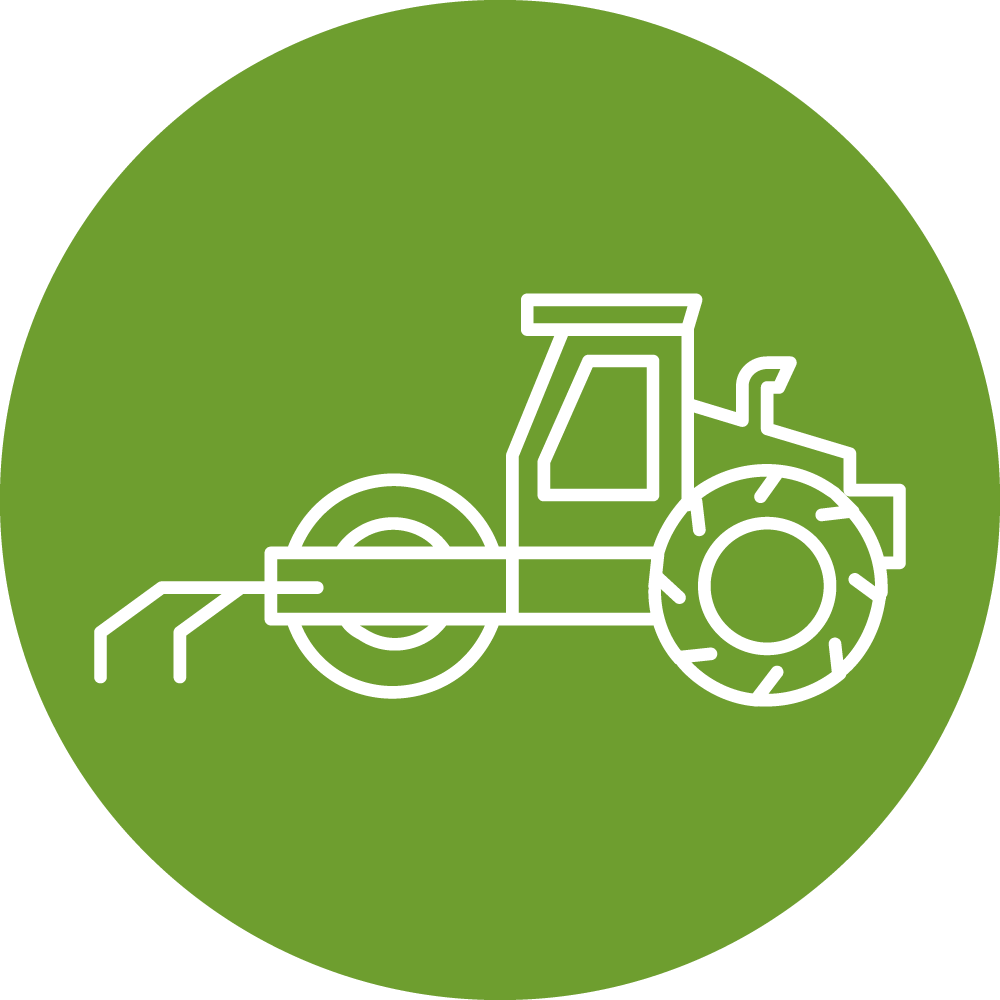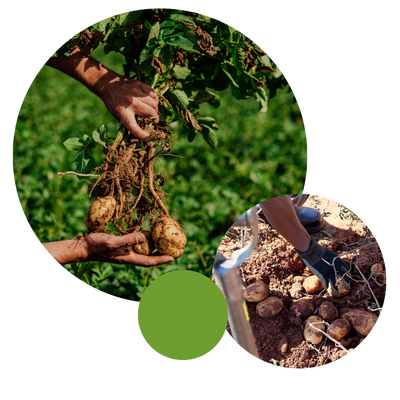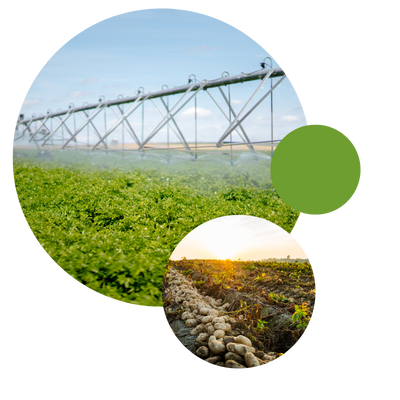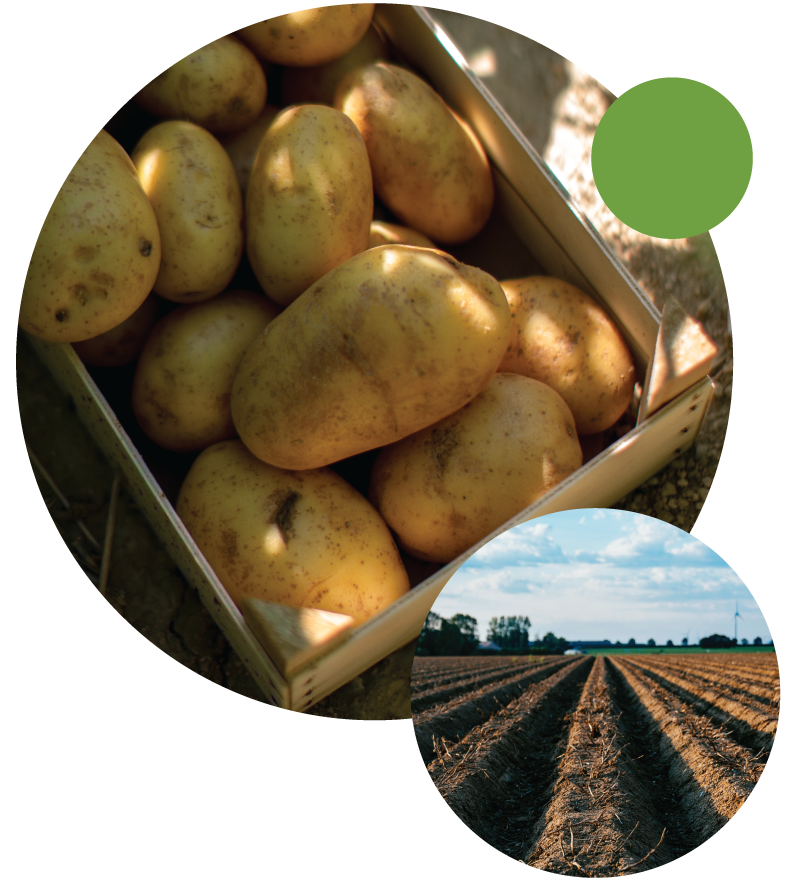Shaping the future of sustainable farming.
With our roots on the farm, we believe agriculture can, and must, be a core part of the solution.
For us this starts with soil. Healthy soils help prevent floods, increase water retention capacity, protect against drought, and nourish the crops that feed us. This goes hand in hand with transforming the way we farm with our farming partners, working with our partners to optimize the use of water and agricultural inputs and to reduce emissions from our potato supply chain.
Our Smart & Sustainable Farming pillar aims to help strengthen food and agricultural systems to support farmers in safeguarding their livelihoods.
Key 2024 Highlights.
Regenerative Financing Partnerships
A big part of the journey to regenerative agriculture is ensuring our farmers are supported financially through the transition. Though we provide education and training through a global network of credentialed organizations, we recognize the cost of the transition cannot be the farmers own to bear. Over the past two years, we have built key financing agreements, co-financing partnerships and grant funding solutions with the leading agricultural banks around the world to support our farmers who endeavor to invest in regenerative practices, equipment and technologies.
Smart & Sustainable Farming Spotlight.
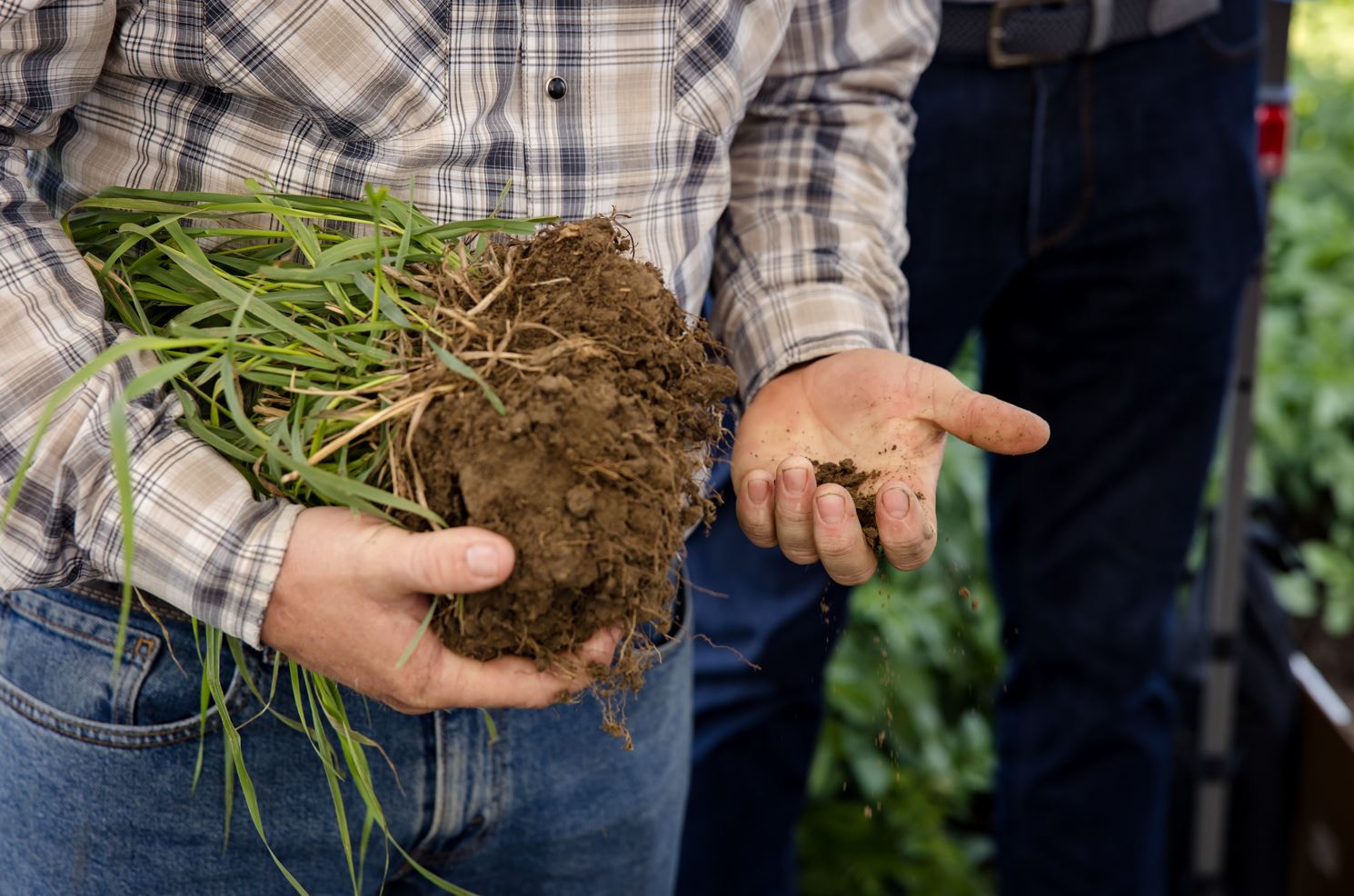
Quantifying the impacts of regenerative agriculture on soil biodiversity through DNA metabarcoding.
McCain is working in partnership with the Centre for Biodiversity Genomics at the University of Guelph to assess the effects of different regenerative agriculture practices on soil health and biodiversity using DNA metabarcoding. There is a global knowledge gap around soil biodiversity because of the difficulties with sampling and identifying soil life forms. DNA metabarcoding can identify every organism at a given site by simply extracting and sequencing DNA in the soil.
We have collected more than 800 soil samples at our Farms of the Future to date and are using these to quantify the impact of regenerative methods such as controlled traffic farming, rotational livestock grazing, green manure, and reduced tillage. This will give us significant evidence around the links between regenerative practices and biodiversity, enabling us to help safeguard soil health in the future. Our ultimate goal is to develop a scalable assessment program that can be used at both farm and regional levels across our farmer network to guide our implementation of regenerative agricultural systems worldwide and demonstrate impact.
Advancing Regenerative Agriculture.
Given the increasingly unpredictable climate, the shift towards smart and sustainable farming practices and the use of renewable energy on farms is vital. Our Regenerative Agriculture Framework has been developed to support best practice, based around six key principles.
McCain Farm of the Future: Growing Crops And Restoring Soil Health | RE:TV
Potatoes are the world's third most important food crop after rice and wheat, and are grown, globally. However, intensive farming has caused soil degradation, water scarcity, and biodiversity loss. To tackle these issues and feed the growing global population, potato farming needs a planet-friendly approach that restores ecosystems and reduces emissions. At McCain Foods, we are leading the way by reimagining the way we grow a potato to secure supply and ensure the long term resilience of farmlands through our Farms of the Future initiative. Merging cutting-edge research and regenerative practices, we believe innovative approaches can revolutionize farming. Since its launch 4 years ago, the project has seen tangible benefits of increased yields, carbon sequestration, soil protection, and biodiversity enhancement.
Farms of
the Future.
We are committed to investing in three Farms of the Future
to showcase regenerative agriculture practices by 2025.
We currently have two active Farms of the Future in Canada and South Africa.
Our Smart & Sustainable Farming Commitments.
Read more
in our
Sustainability Report.







